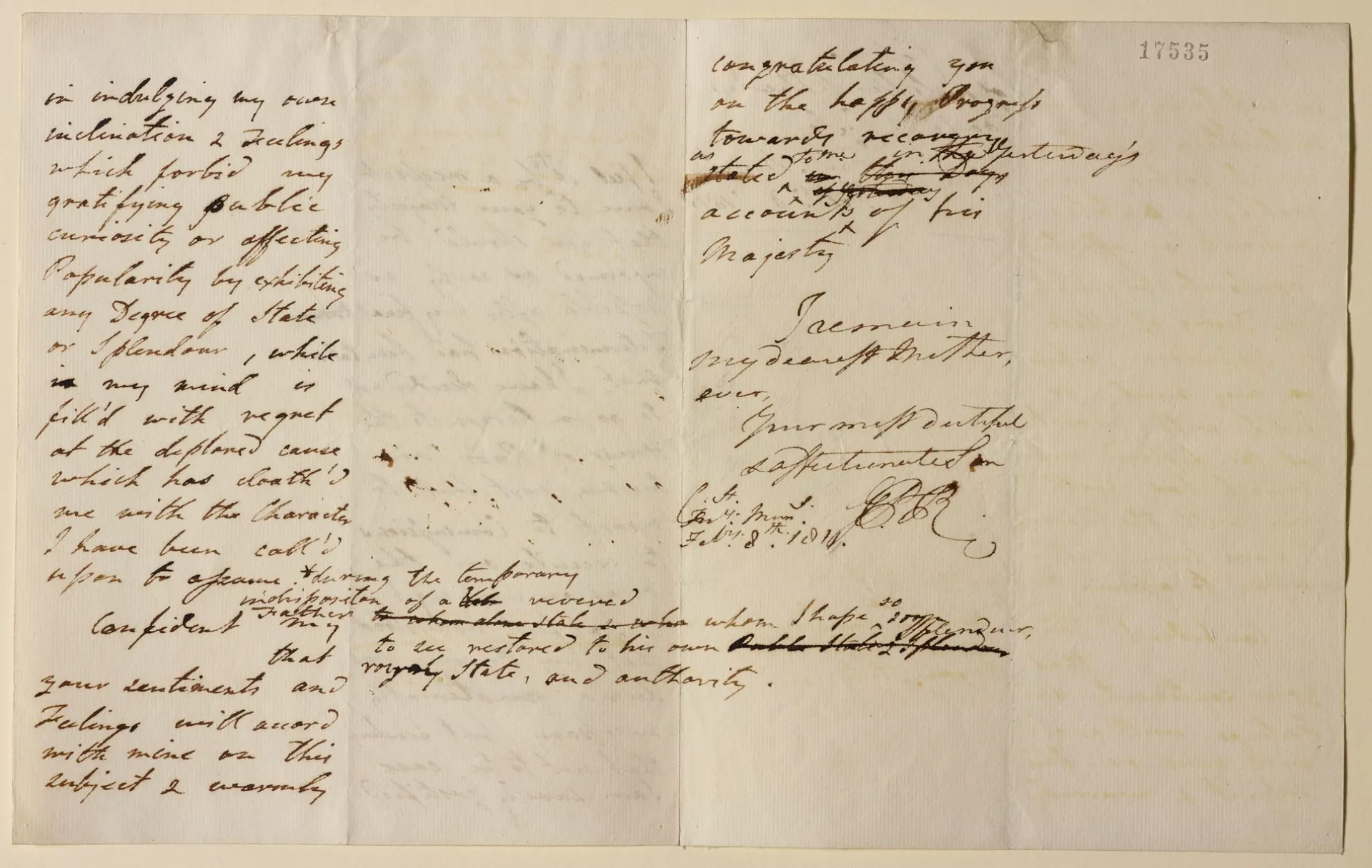RA GEO/MAIN/17534–5
Draft letter from George, Prince of Wales to his mother, Queen Charlotte, on his becoming Regent, 8 February 1811
For more than twenty years after his illness in the 1780s, which had so nearly led to his eldest son, the Prince of Wales, becoming Regent, George III remained fit and able to fulfil his role as Head of State.
In October 1810, however, his symptoms returned, and the question of continuing the business of government without him re-emerged. Once again Tory Ministers were faced with the prospect of a Regency bringing their government to an abrupt end. Like his predecessor William Pitt, the Prime Minister, Spencer Perceval (1762–1812), placed his hopes initially in the King’s recovering, whilst introducing a Regency Bill which would place restrictions on the powers of the Regent.
On this occasion, though, the Regency did come into being and the Prince of Wales was sworn in as Prince Regent on 5 February 1811. However, contrary to Tory fears, and despite his having discussed with his friends the likely composition of a Whig Ministry, he did not dismiss the government.
No longer the impetuous and energetic young man of the 1780s, the Prince now found the idea of power, and the work that this would involve, less appealing. In this draft of a private letter to his mother, Queen Charlotte, he expressed his regret at ‘the deplored cause … [of] the temporary indisposition of a revered father whom I hope so soon to see restored to his own splendour, royal state and authority’. Undoubtedly, though, there is an element here of his writing the words his audience would want to hear, as relations between father and son, who differed in their attitudes to many things besides politics, had generally been uneasy throughout the Prince’s adult life.
The doctors, again very much in the dark as to the cause of the King’s illness, nevertheless reported to the Prince that they thought it probable that it would prove temporary, as before. But there was to be no recovery from his malady for George III this time. He lingered on for another nine years, living in isolation in Windsor Castle until his death on 29 January 1820, when the Prince Regent finally became George IV.








